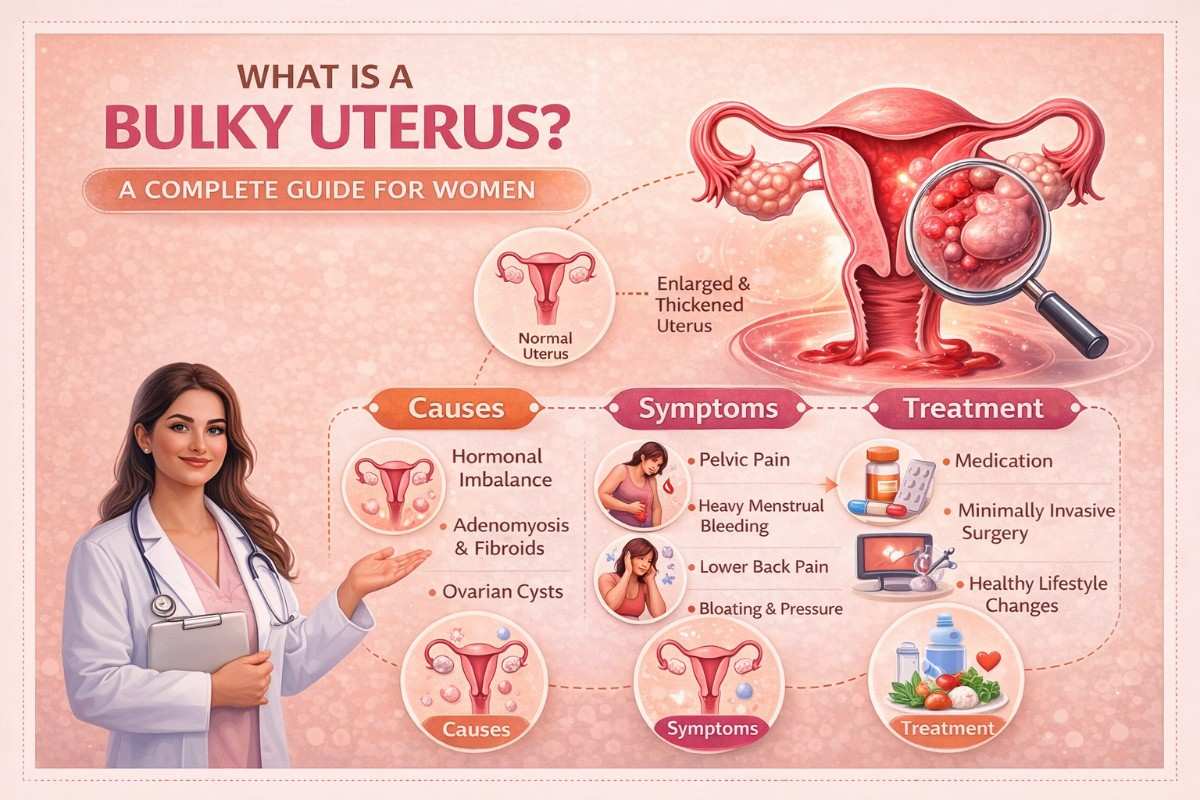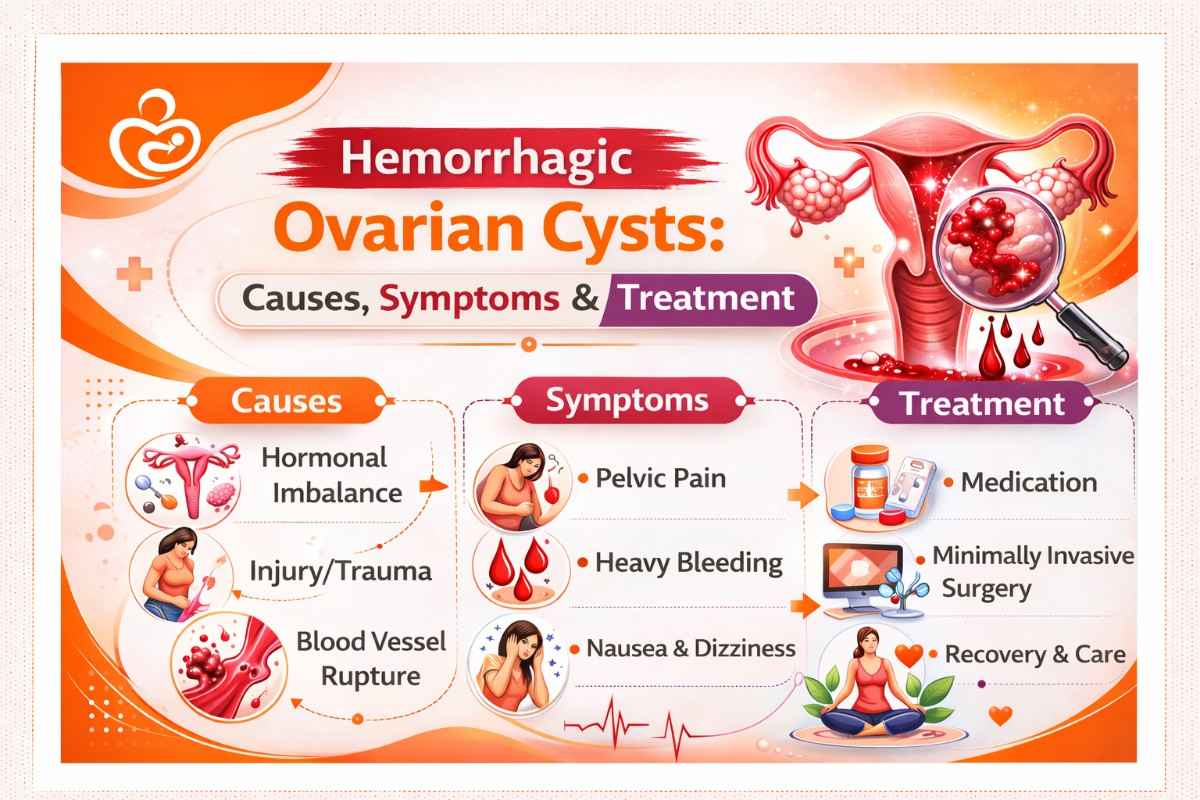While discussing conception or fertility, one of the most common questions often faced is how long does sperm live in the body? Understanding the life of sperm is important for anyone trying to get pregnant or trying to prevent it naturally. Once sperm enters the female reproductive tract, several factors, such as cervical mucus, ovulation time, and overall reproductive health, determine how long it can survive and continue to fertilise an egg.
Moreover, sperm can live inside the female body for up to five days under optimal conditions. However, outside the fertile window or in an acidic vaginal environment, sperm’s lifespan is short. Being aware of how long can sperm live inside you can help individuals to plan intercourse timing for conception or practice safer methods for preventing pregnancy, which is an essential factor of reproductive health awareness.
Your Journey to Motherhood Starts Here
With advanced fertility care and personalized support every step of the way.
Contact UsUnderstanding the Lifespan of Sperm

The lifespan of sperm is relevant to anyone interested in conception, fertility, or reproductive health! These tiny microscopic soldiers are significant players in human reproduction, and their lifespan can depend on many factors, including temperature, environment, and exposure to other fluids in the body.
Sperm can live only a few minutes outside of a body, but can survive for many days inside of a female’s reproductive tract–if conditions are right. Knowing how long can sperm live inside you should help when determining fertility windows and reproductive planning.
1. Sperm Lifespan in Different Conditions
The lifespan of sperm differs based on the environment in which it is. Inside the male body, sperm can live for several weeks inside the testes and epididymis, awaiting ejaculation. When sperm are ejaculated – and come outside the body, such as on dry surfaces or in open air – sperm tend to die relatively quickly (usually in a matter of minutes) from dehydration and temperature changes.
In contrast to that time period, if you are wondering how long can sperm live in uterus, it is considerably longer. The cervical mucus around the time of ovulation offers a safe space for sperm to survive for up to 5 days, which is longer than it will take for sperm to swim to the egg and fertilize it! The length of time sperm can live in the uterus may be affected by cervical mucus consistency, pH levels and health.
2. Sperm Lifespan When Frozen
Sperm can be frozen in a process called cryopreservation for many years without loss of viability. Sperms are combined with a specific cryoprotectant solution during this process to inhibit the formation of ice crystals that could damage cells. They are then preserved for extended periods at low temperatures in liquid nitrogen, approximately -196°C (-321°F).
In this frozen state, sperm can be preserved for as long as needed. When thawed accurately, frozen sperm can still fertilize an egg, which makes cryopreservation an ideal option for men undergoing medical treatments like chemotherapy or those planning future conception.
Read Also – 10 Indian Foods to Avoid During Pregnancy
How Long Does Sperm Live Inside a Woman?
Once sperm have entered the female body, their lifespan depends on the environment, with most surviving in the female tract for up to 5 days, and likely much less, less than 3 days. To determine how long does sperm live in the body, consider sperm quality, the time of ovulation, and the condition of cervical mucus, which may either help or impede sperm.
The female reproductive system is crucial in determining how long can sperm live inside the female body. Cervical mucus becomes thin and alkaline near ovulation, which will provide an environment that allows sperm to swim through the cervix and into the fallopian tubes, where fertilization may occur. Whereas, outside of the fertile window, mucus is usually thicker and more acidic, which shortens sperm lifespan to a few hours.
Moreover, it is worth noting that sperm’s journey is challenging, as millions of sperm are released during ejaculation, but only a few hundred manage to reach the egg. Sperms that survive are nourished and protected by the cervical mucus and fluids within the reproductive tract, which gives the best chance to fertilize the egg.
Key Factors That Can Affect the Survival of Sperm

1. Semen quality and composition
To determine how long does sperm live in the body, it is helpful to note that the semen’s health and composition can play a direct role in sperm survival. The semen is made up of enzymes, nutrients and protective proteins that help keep sperm alive while they are in transport to the eggs.
For example, a lower volume of semen, different-shaped sperm, or poor sperm motility all contribute to a loss of opportunity for sperm to survive long enough to fertilize an egg. Lifestyle factors such as hydration, diet, and health significantly impact sperm quality.
2. Presence of infections or toxins
Infections in the reproductive tract and the presence of toxins indirectly ultimately reduce the sperm life span. Bacterial infections, smoking, STIs, environmental toxins, and alcohol all decrease sperm DNA integrity, decrease mobility and kill sperm.
It is essential to protect reproductive health through proper hygiene, safe behaviour, and avoiding toxic substances to ensure sperm can survive.
3. pH levels
Environmental pH affects sperm survival. Sperm survive better in a slightly alkaline environment. Still, a strong acid environment, such as areas within the female reproductive tract or during infection, can be detrimental to sperm life and motility. A vaginal pH balance will support sperm viability and increase the ability to conceive.
Read Also – What is the Cost of IVF in India? (2025 Guide)
Determining Sperm Survival and Pregnancy Chances
Sperm survival plays an essential role in understanding your pregnancy chances, and determining its lifespan can assist couples and individuals trying to conceive. Women with fertile cervical mucus, sperm have a higher chance of sperm reaching and fertilizing an egg. Knowing how long can sperm survive in the female reproductive tract assists in planning intercourse around ovulation to maximize conception probability. Various factors, such as lifestyle, sperm health, and the woman’s body, will affect the effectiveness of sperm.
Once the sperm is in the female reproductive system, sperm longevity can impact conception. Generally, sperm die within hours of ejaculation, but a small percentage can survive long enough to fertilize the egg, so timing is everything. For couples planning a pregnancy, knowing how long sperm can live inside you to get pregnant is important because sperm can fertilize an egg when intercourse occurs a few days before ovulation.
Conclusion
Knowing how long does sperm live in the body can help couples achieve a successful pregnancy. Under optimal circumstances, sperm can survive for a maximum of 5 days in the female body, depending on the quality of the cervical mucus and overall health.
This understanding may help couples plan intercourse better with respect to ovulation, as they make love. If you are trying to conceive or need expert fertility guidance, Ritu IVF experts can assist with personalized treatments and advanced reproductive care.
FAQs
1. What helps sperm survive longer in the female body?
Fertile cervical mucus provides the necessary sustainability and protection for more prolonged survival.
2. In what places inside the female body does sperm live?
Sperm survive in cervical mucus and the fallopian tubes while waiting for an egg.
3. How long does sperm live in vagina after ejaculation?
After being released from the male body, sperm may last in the female reproductive tract for 3 to 5 days, depending on different conditions.
4. Does sperm live if it does not reach the cervix?
Sperms that do not reach the cervix typically die off in the vaginal environment, usually within a few hours, because it is acidic.




